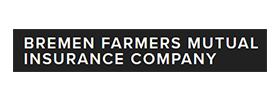The total cost of insurance fraud in the United States is estimated to exceed $40 billion a year. You might think, “well, that’s a big number, but why should I care?” While you might not know it, unfortunately, insurance fraud impacts everyone, not just the insurance companies. They do the crime, and we all end up paying for it. Data from the FBI suggests that insurance fraud costs the average U.S. family between $400 and $700 in premiums to compensate for losses from fraud.
What is insurance fraud, and how do you recognize it when it’s happening?
Defining insurance fraud
In short, insurance fraud is the intentional misleading or activities that take advantage of an insurer’s agreement to pay claims. This can take many forms, but insurance fraud is always usually divided into two main categories: opportunistic and premeditated fraud. The former occurs when a policyholder takes advantage of an existing claim to exaggerate or mislead in order to receive a higher claim payout whereas the latter is intentional, organized crime that can oftentimes have very real consequences that go beyond the financial losses, including but not limited to severe body injury.
Examples of opportunistic fraud might include:
- You get into an accident with another vehicle. Your vehicle has minor damages, but you file a claim for damages to your car that predated the event in order to receive a higher payout.
- After a claim, you exaggerate the extent of your injuries and/or medical treatment needed.
Examples of premeditated fraud might include:
- Staged collisions, where the other driver is either participating or unsuspecting.
- Jump ins, where someone later files an injury claim against the unsuspecting driver despite not having been inside any vehicle involved in the collision.
- Misrepresentation or misinformation regarding one’s primary address, driving habits, etc., to receive lower insurance premiums.
Fraud is fraud, whether it’s premeditated or opportunistic. Both have the potential to greatly impact other policyholders and insurance fraud is a felony that can be punishable with jail time in many states.
What are some common insurance fraud scams?
Here are some examples of common insurance fraud scams that take place in the United States. These fraud scams exist throughout all types of insurance, but are most common with auto.
- Fake theft claims: Policyholders falsely report items stolen from their homes or vehicles to receive reimbursement from their insurance providers. In some cases, the items claimed as stolen never existed or were intentionally disposed of.
- Exaggerated claims: We discussed opportunistic fraud in the point above; exaggerated claims are really the most common example of this. Policyholders inflate the extent of damage or injuries suffered in a genuine accident to receive higher payouts from their insurance companies.
- Property arson: When premeditated fraud goes to the extreme, real damages and potential issues can arise. Property owners intentionally set fire to their homes or businesses to collect insurance money for the damages. Sometimes, they may even destroy valuable possessions before claiming the loss. This can cause damage to neighboring property unintentionally.
- Worker’s compensation fraud: Both employees and employers may engage in fraudulent activities related to workers’ compensation claims, such as exaggerating injuries or underreporting payroll to reduce premiums.
This is only a few examples of different types of insurance fraud scenarios that take place. Identifying insurance fraud can be difficult, although many insurance companies have fraud detection systems in place intended to mitigate losses and preserve their integrity.
Unfortunately, the same can’t be said for policyholders. It’s hard to detect fraud. With a particular fraud scheme, “staged collisions”, you can end up becoming an unwitting participant in a scam, whether you were aware or not. We recommend familiarizing yourself with the different types of staged collisions that exist to keep yourself and your household safer on the roads.
How does insurance fraud impact me?
While insurance fraud may seem like a victimless crime and just “a few extra dollars” received from an insurance company, it’s more than that. Those extra dollars can amount to hundreds, thousands, and beyond over time and with thousands of criminals participating. The financial implications don’t just impact the insurance industry, but policyholders as a whole.
See, it boils down to the way insurance companies pay claims. Insurance companies use premium payments for a variety of things, including funding their operations, and revenue. Still, most of what premiums are used for is to contribute to a “pool” of funds, which are then later used to make payouts when claims are filed. All insurance companies are typically required to maintain a certain “safety fund” to ensure claims can be paid out in the event of an unexpected disaster in a single geographic region (a huge storm, wildfire, etc.)
When fraud is committed, claim payouts go up, and that pool is diminished. In order to ensure claims can continue to be paid out, insurance companies must raise rates for every policyholder across the board, which can make it seem like your insurance costs have gone up for “no reason.” That’s the unfortunate consequence of insurance fraud. While you may always be honest and upfront with your insurance agent and company, others may be abusing their policies for personal gain – and you end up paying for it.
Stay vigilant. If you have any questions about insurance fraud or its impacts, or are concerned about rising insurance premiums, please give us a call.























